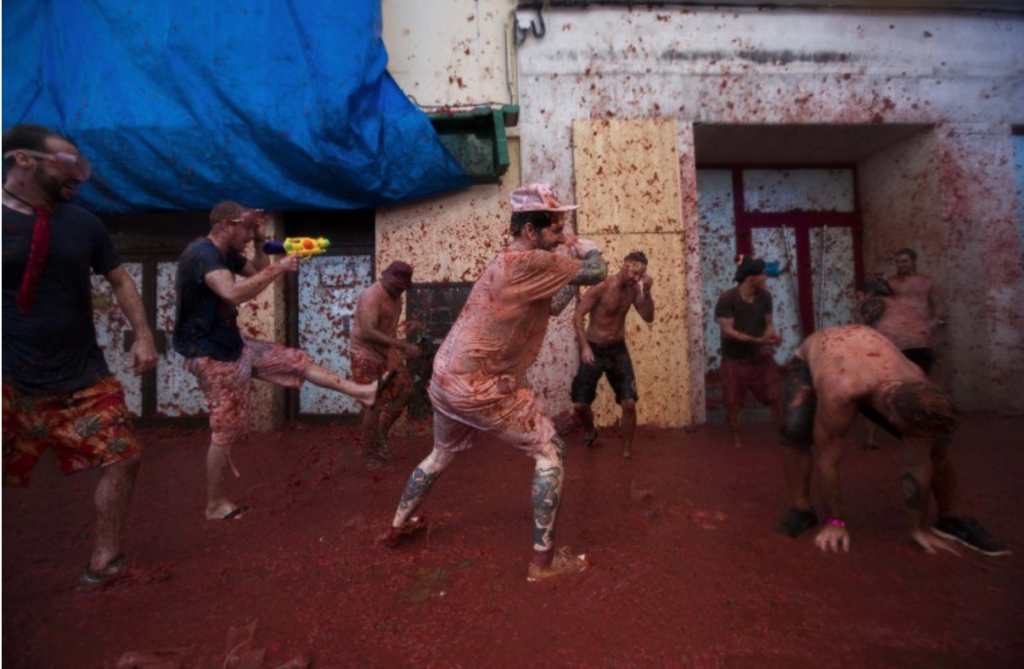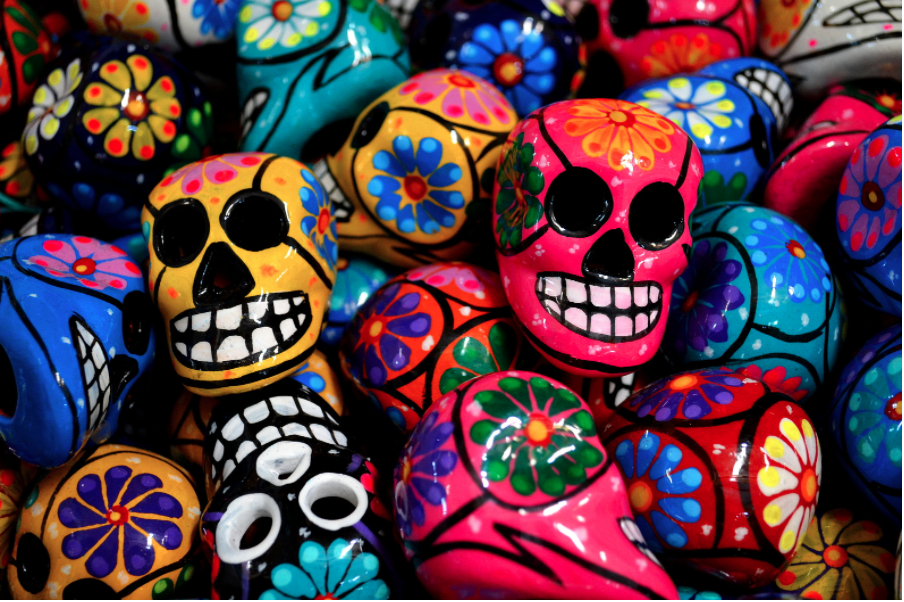Spain
Food fights are taken to the extreme in the small village of Buñol, where thousands gather every August to take part in La Tomatina — a squashed tomato fight. An estimated 145,000kg are thrown each time.
Another Spanish custom that revolves around food is Entierro de la Sardinia, which translates to Burial of the Sardine. Every year on Ash Wednesday a procession of mourners follow the likeness of a dead sardine, which is either buried or cremated when it reaches the end of the route. This ceremony is symbolic of burying the past and looking towards a hopeful future.
(source)
Germany
Want good luck before your wedding? In Germany a couple’s family and close friends gather the night before to break porcelain outside their house in a ceremony called Polterabend. The couple then clean up the mess, which signifies that they must work together through difficult times.
(source)
Thailand
Every November, residents in a town called Lop Buri prepare dishes of fruit, cakes, and sweets, which are served on long outside tables. But they’re not for people — this feast, known as The Monkey Buffet Festival, is for the native Macaque monkeys.
(source)
Mexico
Dia de Los Muertos (Day of the Dead, 31st October–2nd November each year) is an opportunity for Mexicans to remember their loved ones. It’s a celebration of life, rather than a time of sadness, so graves are adorned with brightly coloured flowers and some communities even have parties in the cemeteries. Offerings of favourite foods, sugar skulls, a bread called pan de Muertos, and marigolds are made to the spirits.
England
Normally the English enjoy their Yorkshire puddings (a batter made from eggs, milk, and flour) on the side of a roast dinner. But once a year, in Brawby, giant Yorkshire puddings are cooked and then coated with thick layers of yacht varnish. Every pudding is big enough for someone to sit in and that’s exactly what happens — each oarsman rows his pudding across Bob’s Pond in a race to the finish line.





